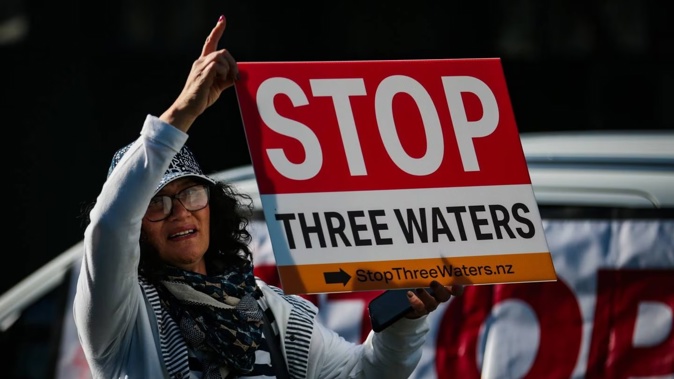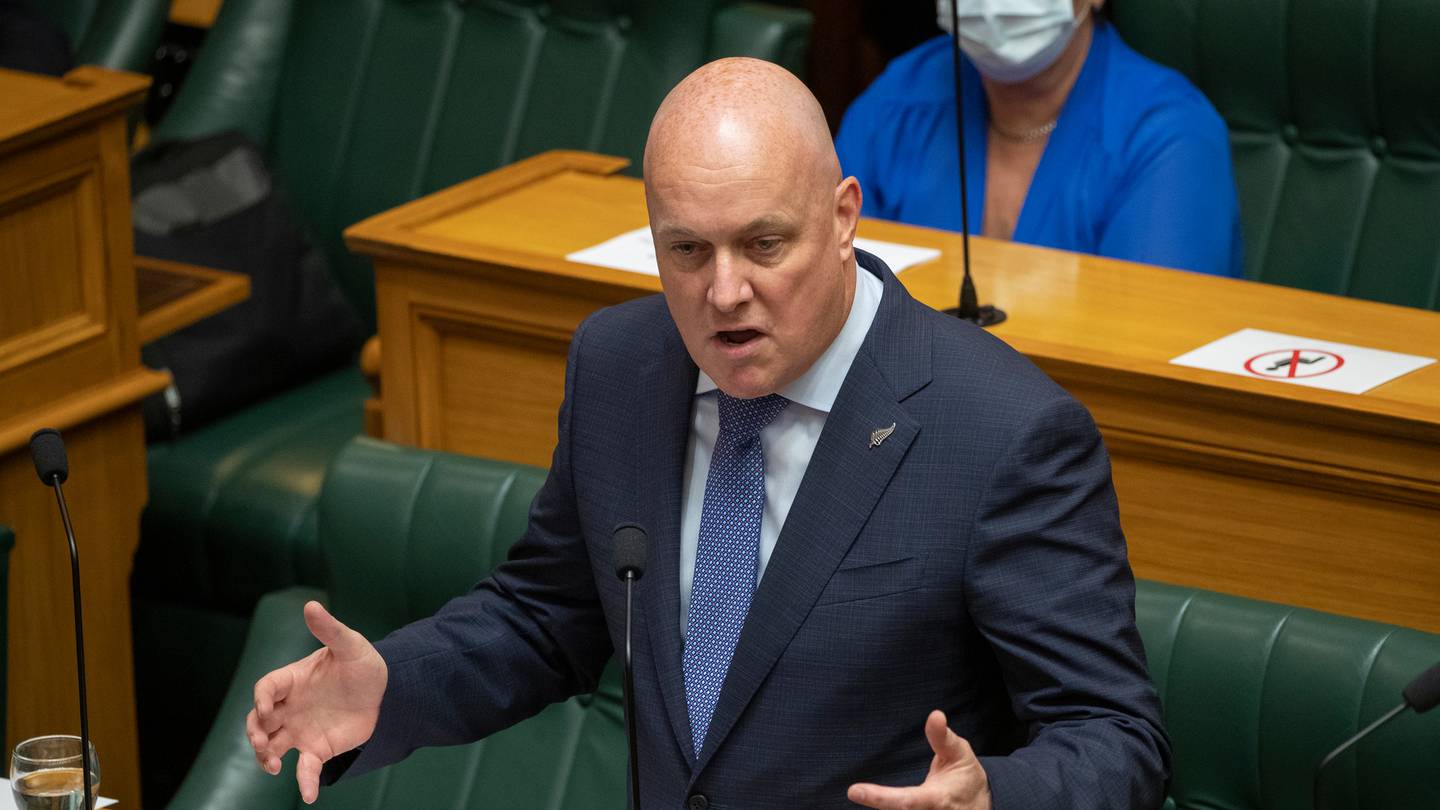
The Labour Government’s three waters reform plan may well prove to be the largest waste of public money of the last six years.If there was a prize for such a miserable achievement it would no doubt require the winning combination of enormous spending complimented by the failure to midwife any actual, enduring change, not to mention improvement.Blame the incoming Government if and when it overturns the current reform programme, or blame the outgoing Government for dousing the baby of improved water services with so much dirty bathwater that the country has elected to be rid of both. Either way the money will be gone.There is, as yet, no complete tally of the programme cost. Stripping out the Covid Response and Recovery Fund money – most, but not all, of which was spent on actual water infrastructure – and including budgeted spending that has already begun, the total easily tops $1b. What is left, when the tap is turned off, remains to be seen.A new Government is weeks away still, but it will almost undoubtedly have a National-Act party core, and both have vowed to repeal the current water reforms; National has promised to do so in its first 100 days in office.New Zealand First, also expected to play some role in the new Government, is unlikely to interfere with this plan; it has been generally critical of Labour’s programme.A spokesperson for National leader Christopher Luxon said the party wouldn’t be in a position to start putting policies and plans in place until a Government is formed.In the meantime, the Department of Internal Affairs (DIA), which is leading the water reform programme, indicated that work on the old plan continues apace.

“It would be inappropriate for us to speculate on what a repeal might look like or what changes to the programme may be decided, or indeed how much of the monies expended to date would be recoverable. We will await direction from the new Minister once appointed and make any adjustments to the programme as required,” a spokesperson for the department’s water services reform programme said.In the last 12-months the department’s rate of spending has been put into high gear, and it is currently pouring money into a frenzy of preparatory work for the establishment of 10 new water services entities (WSEs), 9 of them delayed and all of them revised since Labour’s original plan for 4.Here, then, is the current lay of the land. DIA has 427 staff working on the reform, and they are focused on transferring control and management of local storm, waste and drinking water services from local councils, which own the assets, to the planned WSEs. The tally does not include consultants.Of those, 157 are contractors and 54 are external secondees. It is likely that these jobs can be shed at short notice with little further cost. The balance, however, is made up of 13 permanent staff and a further 203 employees on fixed-term contracts. There may be redundancy costs for this group.Since last October, these staff have spilled well beyond DIA’s head office in Welington’s Pipitea St, and into three newly leased properties.In October 2022, a $2m per annum lease commenced for several floors of a Sale Street building in Auckland’s Freemans Bay. In December, the department took up a lease in Manchester St., Christchurch at a cost of $183,000 per annum. And, in June it rented a further Grantham St., Hamilton property, at $68,430 per annum.Heather Shotter, executive director, water services reform national transition unit, said that each of the premises serves as “a hub” for the new WSEs.The leases are now almost undoubtedly redundant. A key plank of both National and Act’s still threadbare plans to replace the current programme is that water assets should remain owned and controlled by local councils, they can merge as they choose. The 10 WSEs will be scrapped.Shotter said the Auckland office is also a base for “external vendors” working on the digital and data plan that underspins the reforms. But whether this massive piece of work will endure is an open question.The budget for this information and communications technology (ICT) is a whopping $385m, with an additional $147.7m contingency.The centrepiece contract is for “systems of record” which would underpin areas of operation – including financial management, asset management, workflow, procurement and supply chains, and customer management.Whether councils will want any of this remains to be seen. What’s almost certain is that they’ll have no interest in paying for it.
This central contract was awarded to US software company Infor in December last year. It runs for five years, including implementation, and the total value is $186.6mOf that total, the DIA currently anticipates that $107m will be paid by the Central Government, and the remaining $79.6m will be met by ratepayers, through debt that has yet to be heaped on the soon to be scrapped WSEs.The department couldn’t quickly confirm what ICT costs have already been sunk. But the spokesperson indicated that the work is on track to meet a deadline of July 1 next year, when the first of the new WSEs is still scheduled to “go live”.From here, there appear to be off ramps if the incoming minister chooses to use them: a 2022 briefing to then Minister for Local Government Nanaia Mahuta indicated scope for terminating the Infor work: “in the event of a regulatory change prior to July 1 2024 for reasons including a repeal of part of all of the Three Waters Reform Programme”.Back at head office in Wellington’s Pipitea St., a Māori team of 21 is currently working with a budget of $12m ($11.3m of it to be spent in the current year) to establish “iwi collectives”.This work is aimed at helping iwi and hapū groups prepare for joint oversight of the new WSEs, through sharing (50/50) the seats on WSE regional representatives groups, and also through directing the WSEs with te mana o te wai statements.Both provisions have been described by National and Act as co-governance and they have promised to abandon them.Finally, in recent months the DIA has also begun paying out a $500m pot of “Three Waters better off support” to local councils, a sum (much diminished from the original promise) which was intended to buy acquiescence to the reform. It never did.My local Nelson Council recently got $5.2m. It’ll buy “play space” ($2.2m) and “railway reserve lighting” ($1m) and a “creative tourism winter festival” ($400,000), and here, forgive me, I must quote the council at greater length: “to develop a creative tourism project bringing a winter festival to Nelson, offering participatory and educational arts opportunities for both locals and visitors, and building on existing successful models such as jewellery and clay weeks”.Whatever you make of this general do-goodery it has absolutely nothing to do with better water. Such strings were never attached.
Take your Radio, Podcasts and Music with you









